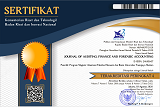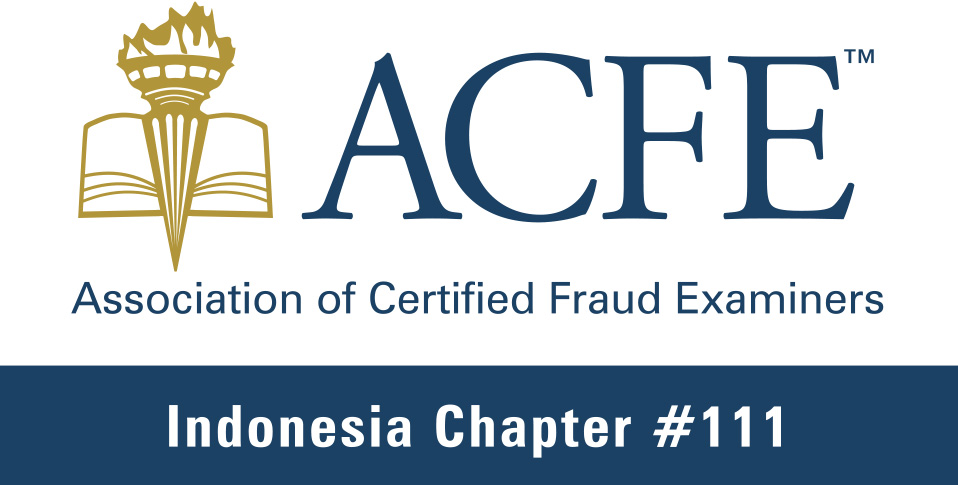Forensic Accounting: Breaking the Nexus between Financial Cybercrime and Terrorist Financing in Nigeria
Abstract
This paper aims to examine forensic accounting (FA) investigation in tracking financial cybercrime (FC) and terrorist financing (TF) in Nigeria. It also verifies the associations between cyber criminality and terrorist financing. The sample composed of all Nigeria anti-graft agencies including the Nigeria Communication Commission (NCC). A quantitative method is used in a way to analyze the data. The results of the hypotheses revealed that forensic accounting has significant influence in disclosing the associations between financial cybercrime and terrorist financing. This study finds forensic accounting as a tool and deterrence to terrorist financing and associated crimes activities. The implications of this study emphasized that the government should strengthen enforcement on cybercrimes and provides security infrastructure (advanced technology) in tackling the precedence of financial cybercrime and terrorist financing in Nigeria.
Keywords
Full Text:
PDFReferences
Anderson, Ross and Petitcolas, Fabien. (2008) “On the Limits of Steganography,” Journal of Selected Areas in Communications, Vol 16, No 4, pp 474–481.
Asogwa, Ikenna. (2014) “The Use of Forensic in Fraud Detection and Control, International Journal of Research in Management”, Vol 5, No.4 pp 61-71.
Bologna and Lindquistn (1987). Fraud auditing and forensic accounting: new tools and techniques. European Journal of Accounting Auditing and Fiancé Research.
Chester, OehmeIII. (2008) “Terrorist, Insurgents, and Criminals--Growing Nexus”, Journal: Studies in Conflict & Terrorism, Vol 31, No.1, pp 80 -93
Collin, G. (2015) Incorporation “Cutting Edge” Forensic Accounting Techniques/ Methodologies into College/University Audit, Annual Conference. Indianapolis.
CTITF Office (2009) Guide to UN Counterterrorism, New York, USA
Encyclopedia of Espionage, Intelligence, and Security COPYRIGHT 2004 The Gale Group Inc.
FATF Report (2013) the Role of Hawala and Other Similar Service Providers in Money Laundering and Terrorist Financing, Andre Pascal, France
http://uk.businessinsider.com
https://en.wikipedia.org/wiki/Steganography
https://www.techopedia.com/definition/14738/data-hiding
Jaishankar K., (2008). Space Transition Theory of Cyber Crimes. In Schmallager, F., & Pittaro, M. (Eds.), Crimes of the Internet (pp.283-301).
James D. Boys (2018). The Clinton administration’s development and implementation of cybersecurity strategy (1993–2001)
Ken, Zatyko (2007) Commentary: Defining Digital Forensics, http://www.forensicmag.com/article/2007/01/commentary-defining-digital-forensics
KPMG International (2011). Cyber Crime – A Growing Challenge for Governments, Vol 8, kpmg.com
Krancher, R. (2010) Introduction to Fraud Examination and Financial Forensics, New York, USA
Madan, B. (2013). An Empirical Investigation of the Relevant Skills of Forensic Accountants: Experience of a Developing Economy. European Journal of Accounting Auditing and Finance Research Training and Development UK Vol. 1, No .2, pp11-52
Natti Ronel, Jaishankar, (2008) “Establishing a Theory of Cyber Crimes”, International Journal of Cyber Criminology, Vol 1, No. 2. pp 7-9.
Nir, Kshetri. (2010) The Global Cybercrime Industry, Springer, New York.
Nir, Kshetri. (2010) The Global Cybercrime Industry: Economic, Institutional and Strategic Perspectives, Springer, USA
DOI: https://doi.org/10.21107/jaffa.v8i2.8350
Refbacks
- There are currently no refbacks.
Our Journal indexed by:
Our support tools using:



This work is licensed under a Creative Commons Attribution 4.0 International License.












